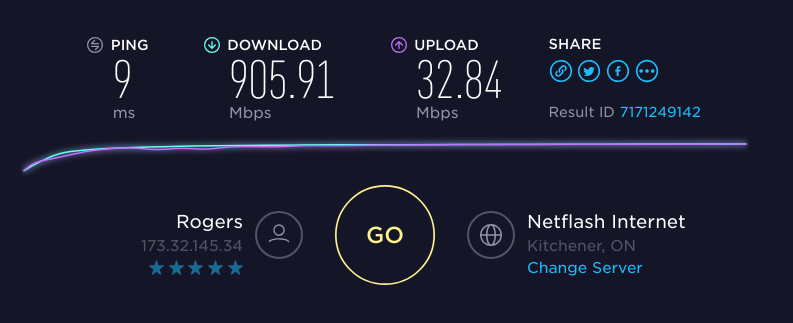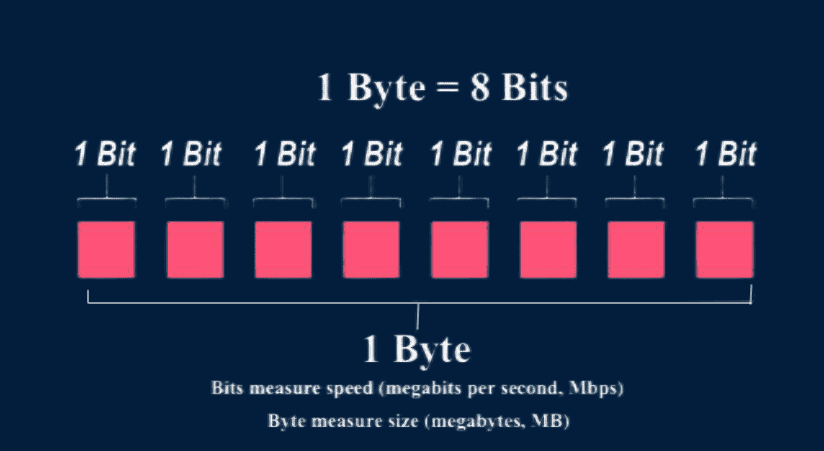Checking out the Connection Between Megabits Per Second and Download Speeds
Checking out the Connection Between Megabits Per Second and Download Speeds
Blog Article
Demystifying Megabits Per Second: An Overview to Picking the Right Internet Plan
Recognizing the principle of megabits per second (Mbps) is important when choosing a web plan that straightens with your details demands. With the wide variety of plans available, how do you recognize which one is appropriate for you?
Comprehending Megabits Per Second

To grasp the significance of Mbps, it is necessary to acknowledge that it shows the maximum transmission capacity readily available for data transfer. A strategy offering 100 Mbps allows for the synchronised transmission of data at that price, though actual speeds may differ due to network blockage, distance from the service company, and the efficiency of your home network tools.
In addition, recognizing the difference between megabits and megabytes is critical. While megabits represent the rate of data transfer, megabytes (1 byte = 8 little bits) measure the dimension of documents. As an example, downloading and install a 100 megabytes data on a 100 Mbps connection in theory takes regarding 8 seconds, preventing any kind of disruptions.
Ultimately, choosing a suitable Mbps score based upon your household's internet use is essential for making sure an acceptable online experience.
How Internet Speed Affects Tasks
Internet rate plays an essential duty in figuring out exactly how successfully individuals can engage in various online tasks. Standard activities like surfing sites or examining emails commonly need lower speeds, typically around 1-5 Mbps. Megabits Per Second.
Online gaming, another prominent task, additionally counts greatly on internet rate. A steady connection of at the very least 15-25 Mbps can supply an one-upmanship and minimize latency, which is necessary for real-time interactions. Video conferencing applications, increasingly important for remote work, benefit from rates of at least 3-8 Mbps for clear sound and video top quality.
In houses with multiple users, simultaneous activities can stress data transfer. In such instances, higher speeds-- 50 Mbps or more-- are a good idea to suit diverse demands without a decline in efficiency. Hence, recognizing the partnership between internet rate and certain online activities is critical for selecting a suitable plan that satisfies specific or family needs efficiently.
Different Sorts Of Internet Strategies
Selecting a proper internet plan calls for an understanding of the different options readily available out there. Internet solution providers (ISPs) generally supply several kinds of strategies, each satisfying different user needs and preferences.
Broadband plans are one of the most common, giving high-speed internet by means of cable television or DSL links. These strategies are suitable for families that participate in numerous online activities all at once, such as pc gaming, video clip, and streaming conferencing - Megabits Per Second. Fiber-optic strategies, while much less commonly available, offer the fastest rates and the most effective efficiency, making them optimal for tech-savvy customers or those why not find out more with extensive transmission capacity needs
Set wireless and satellite strategies offer areas where standard wired links are not available or unstable. While they can be advantageous for rural customers, they frequently include greater latency and reduced rates contrasted to broadband options.
Mobile hotspot plans allow individuals to access the internet with mobile networks, giving adaptability for those that call for internet on the move. Some ISPs offer tiered strategies with differing rates and information caps, allowing clients to select a plan that aligns with their usage patterns and budget. Understanding these various kinds of internet plans is important in making a notified decision.
Determining Your Rate Demands
Often evaluating your rate requires is vital for choosing a net plan that suits your way of living. Comprehending the requirements of your house or service can help in picking a proper package. Begin by reviewing the number of devices that will certainly be connected all at once. Each gadget consumes data transfer, and high usage can cause slow efficiency.
Following, take into consideration the activities you participate in online. Basic jobs such as browsing and emailing normally require reduced rates, around 1-5 Mbps. Streaming video clips in high definition, online video gaming, or huge file downloads may require rates upwards of 25 Mbps or even more.
Additionally, think about the variety of customers. Megabits Per Second. A household with several individuals streaming web content or gaming at the same time will need dramatically more data transfer than a single-user situation
Last but not least, remember that internet rates can be affected by elements such as network congestion and the high quality of your router. By completely examining your rate requires, you can make an educated choice, making certain that your internet plan straightens with your day-to-day use and future demands.
Tips for Selecting the Right Plan
Selecting the ideal internet plan needs cautious consideration of a number of essential elements to ensure it meets your needs. First, assess your usage patterns-- whether you are streaming, gaming, or functioning from home-- given that these tasks require various data transfer levels. Normally, homes with several users or high-bandwidth tasks will take advantage of higher-speed strategies.
Following, analyze the data caps connected with different plans. Some companies impose limits on information usage, which could cause surcharges or strangled rates upon exceeding those restrictions. Picking a limitless data plan may be advantageous for hefty users.
In addition, think about the reliability of the service copyright. Research study customer evaluations and inquire concerning the supplier's uptime and customer solution performance. If it lacks dependability or support., a more affordable plan may not be an excellent deal.
Last but not least, assess advertising offers and contract terms. While initial prices look what i found can be attractive, recognize the long-lasting prices and whether the plan needs an extensive contract. By evaluating these variables, you can make an educated choice that straightens with your internet requirements and spending plan, ensuring you choose one of the most ideal prepare for your home.

Final Thought
In verdict, understanding megabits per second (Mbps) is crucial for choosing an ideal internet plan. Ultimately, selecting a plan with adequate data transfer ensures fulfillment and efficiency in navigating the digital landscape.
Comprehending the principle of megabits per second (Mbps) is essential when choosing a net plan that aligns with your particular needs. Hence, comprehending the partnership between internet rate and specific online tasks is critical for selecting an appropriate plan that satisfies private or family requirements successfully.
Mobile hotspot plans allow users to access the internet through mobile networks, supplying adaptability for those that need internet on the go. Some ISPs click reference provide tiered plans with differing information and rates caps, allowing customers to select a strategy that aligns with their usage patterns and budget.Often analyzing your rate requires is vital for selecting an internet plan that matches your lifestyle.
Report this page